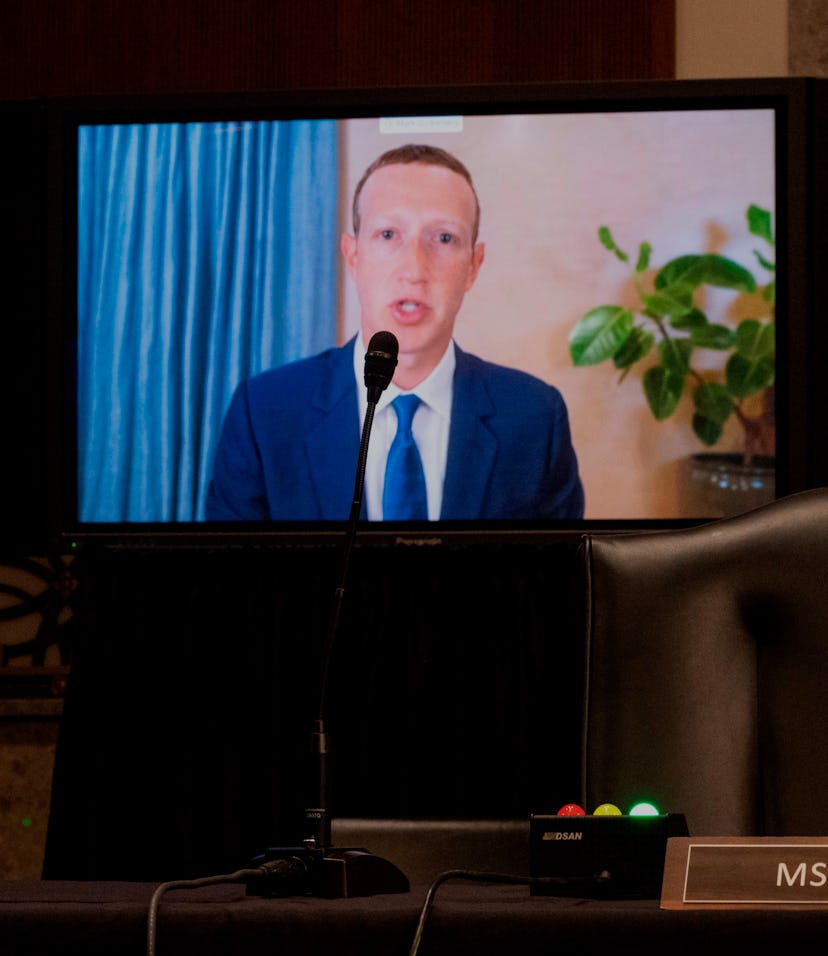Culture
Twitter and Facebook want academics to study their election responses
Transparency was a popular topic at today's Senate hearing. Will Zuckerberg and Dorsey actually follow through with their promises?

Jack Dorsey and Mark Zuckerberg are once again facing intense questions from the U.S. Senate today, and thus far the probing has focused, unsurprisingly enough, on the supposed silencing of conservative voices in the fallout of the recent presidential election. Both CEOs reassured those on the panel that they would be analyzing how their respective platforms handled misinformation during and after the election — and mentioned that they’ll be opening that process up to outside sources, too.
After a brief recess, Senator Patrick Leahy of Vermont asked whether or not Facebook and Twitter have yet conducted post-election reviews of misinformation. Leahy’s question followed an earlier interrogation into how Twitter and Facebook would use their experiences with the presidential election moving forward.
Zuckerberg, sounding well-rehearsed for this very question, answered in the affirmative. He mentioned as well that Facebook would be “commissioning individual academics” to study the matter. Dorsey said that Twitter would be taking the same measures moving forward, adding that the company would be opening up its APIs to researchers as well.
It’s too soon to say whether or not this research will actually prove fruitful. Even so, it’s a big step toward transparency in Big Tech — something sorely lacking at the moment.
Opening up, maybe — Both Twitter and Facebook have, as expected, struggled with the spread of conspiracies and misinformation since the election. President Trump’s own lies have served as lighter fluid for this fire. Measures have been taken to curb this spread — but it obviously has not been enough.
Twitter and Facebook’s willingness to open up the study of this misinformation to third parties could be just the kind of aid they’ve been missing. Thorough, third-party studies into Facebook’s civil rights issues, for example, proved incredibly illuminating.
But the efficacy of these third-party investigations will ultimately be up to how much access Facebook and Twitter actually allow for. Facebook, in particular, hasn’t exactly been forthcoming with allowances for research into its operations. Its Oversight Committee — which is meant to have similarly independent research power — has actually proven to be controlled by Facebook much more than the company wanted us to know.
Toward a transparent future — Today’s hearing turned out to be just as scattered as we imagined. Still, some useful tidbits emerged from the questioning of Zuckerberg and Dorsey. Many of the senators focused at least some of their time on transparency in Big Tech.
One of the biggest questions raised by this series of hearings is whether or not Section 230 of the Communications Decency Act needs to be reformed. Both Democrat and Republican lawmakers feel the answer is yes, though for very different reasons.
At today’s hearing, both Dorsey and Zuckerberg agreed that CDA 230 needs some updates, and both mentioned mandated transparency as part of that reform. Dorsey said he believes the future of CDA 230 is increased transparency around standards, moderation processes, and algorithmic choice. Zuckerberg agreed but also took some time to pat Facebook on the back for being “more transparent than anywhere else.”
The future of Section 230 — and of the tech industry as a whole — is less clear with each new hearing. The only thing that seems clear is that change is coming whether we’re ready for it or not.